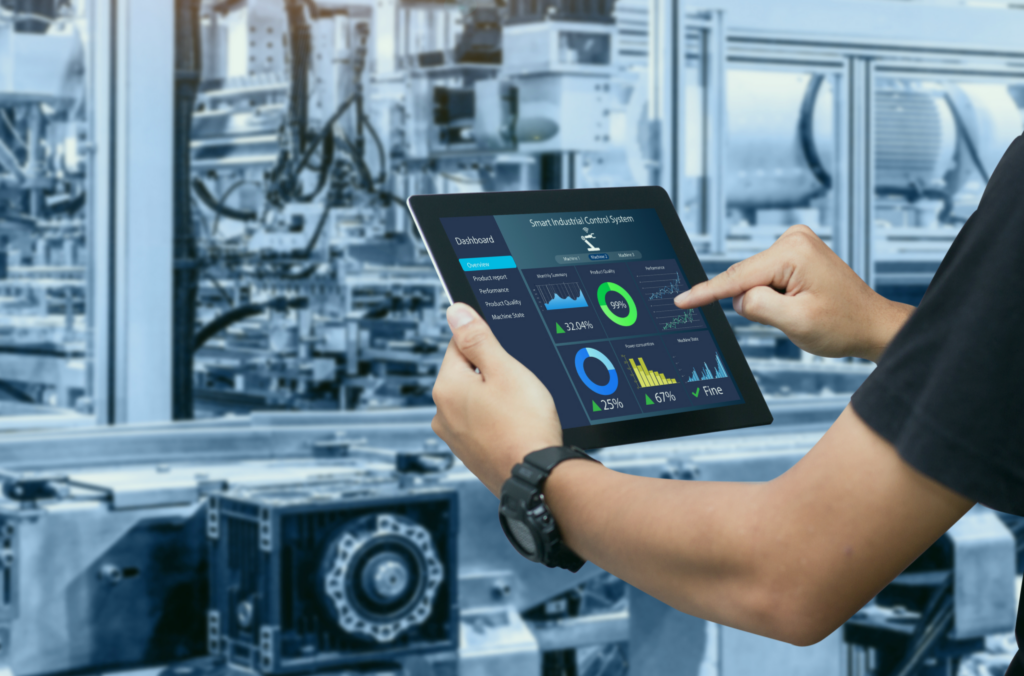Becoming a Successful Manufacturing Business Operations in Indonesia

Nova Ulaila Dewi, Marketing Assistant Manager, PT SystemEver, Indonesia
As of the latest available data, Indonesia’s manufacturing sector remains a vital pillar of its economy, contributing significantly to the Gross Domestic Product (GDP). In 2022, manufacturing accounted for approximately 18% of Indonesia’s GDP, increasing to 20%, reflecting a substantial shift from its historical dependence on agriculture.
Indonesia has increasingly become an attractive destination for manufacturing investment. According to data from BKPM, investment in the manufacturing sector rose from IDR 104.6 trillion in the first quarter of 2019 to IDR 129.6 trillion during the first quarter of 2020, achieving a 23.9% growth rate. Despite the COVID-19 pandemic, Indonesia’s manufacturing sector has continued to grow. The sector recorded a significant recovery and expansion in recent years. In 2022, the manufacturing industry grew by 4.9%, a notable increase from the previous year’s growth of 3.4%. This resurgence was driven by strong domestic demand and strategic government policies aimed at boosting industrial activities. [1] The growth trajectory continued into 2023. Indonesia’s manufacturing Purchasing Manager Index (PMI) maintaining an above-50 score for 18 consecutive months, signalling continuous expansion. The PMI score was 51.2 at the end of February 2023, supported by robust domestic demand and easing supply constraints. [2]
[1] https://www.focus-economics.com/country-indicator/indonesia/manufacturing/
[2] https://business-indonesia.org/news/indonesia-maintains-steady-expansion-of-its-manufacturing-sector
Key Factors for Indonesia’s Manufacturing Investment Attraction:
- Abundant Natural Resources: The country’s rich endowment of natural resources, including minerals, palm oil, timber, and fisheries, supports a diverse range of manufacturing activities.
- Youthful and Skilled Workforce: With a burgeoning population and a growing emphasis on education and vocational training, Indonesia boasts a dynamic and increasingly skilled labor force, essential for industrial growth and innovation.
- Strategic Geographical Location: Situated at the nexus of vital maritime trade routes, Indonesia enjoys strategic advantages for logistics, trade, and manufacturing supply chains, facilitating efficient access to global markets.

Challenges and Consideration
- Supply Chain Management: Ensuring robust supply chains, efficient logistics, and effective quality control measures are essential for maintaining competitiveness and meeting global standards.
- Cultural and Linguistic Diversity: Indonesia’s vast cultural and linguistic diversity presents both opportunities and challenges for business operations, requiring sensitivity and adaptation to local customs and practices.
SystemEver Manufacturing Cloud ERP For Indonesia’s Future Outlook:
Indonesia’s unique geographic structure, with its 17,000 islands (around 6,000 of which are inhabited), presents substantial logistical challenges for manufacturing companies. The dispersal of populations and markets across numerous islands requires intricate coordination of transportation, warehousing, and distribution. Variability in infrastructure quality, from well-developed urban centers to remote areas with limited access, further complicates logistics. Ensuring timely and cost-effective delivery of goods across this archipelago underscores the necessity for robust and advanced Supply Chain Management (SCM) solutions.
Adopting advanced SCM technologies can significantly enhance efficiency and effectiveness in this challenging environment. Technologies such as SystemEver Manufacturing Cloud ERP can provide critical improvements in supply chain visibility, enabling real-time tracking of goods, optimized route planning, and precise inventory management. These advancements facilitate informed decision-making and strategic planning, allowing manufacturers to predict demand trends accurately and adjust operations accordingly. Ultimately, the integration of advanced SCM technologies leads to improved overall performance, reducing costs, enhancing customer satisfaction, and maintaining a competitive edge in the market.
SCM Features in SystemEver Manufacturing Cloud ERP Useful for Indonesian Businesses:
- Multi UoM and Conversion Factor: Useful for managing multiple units of measure (UoM), which is common in manufacturing to track inventory and production accurately.
- Warehouse Management System: Critical for efficiently managing inventory across multiple warehouses, ensuring smooth operations and timely production.
- Stock Movement & Availability: Necessary for tracking the movement of stock within warehouses and determining real-time stock availability, crucial for production planning.
- Lots and Serial Number Tracking: Important for traceability and quality control in manufacturing processes, especially in industries where batch tracking is essential (e.g., pharmaceuticals, food production).
- Inventory Valuation: Essential for calculating the value of inventory on hand, important for financial reporting and decision-making.
- Item Master: Centralizes information about items used in manufacturing, ensuring consistency and accuracy in data across the organization.
By leveraging these advanced SCM technologies, Indonesian manufacturers can mitigate the challenges posed by geographical dispersion and infrastructure variability. They can achieve higher levels of operational efficiency, reduce logistics costs, improve supply chain responsiveness, and ultimately enhance customer satisfaction through timely deliveries and consistent product availability. This holistic approach not only supports business growth and profitability but also positions companies to adapt swiftly to market changes and maintain a competitive edge in the dynamic Indonesian manufacturing landscape. Thus, investing in robust SCM solutions tailored to local challenges is crucial for sustainable success and resilience in the evolving market conditions of Indonesia.




